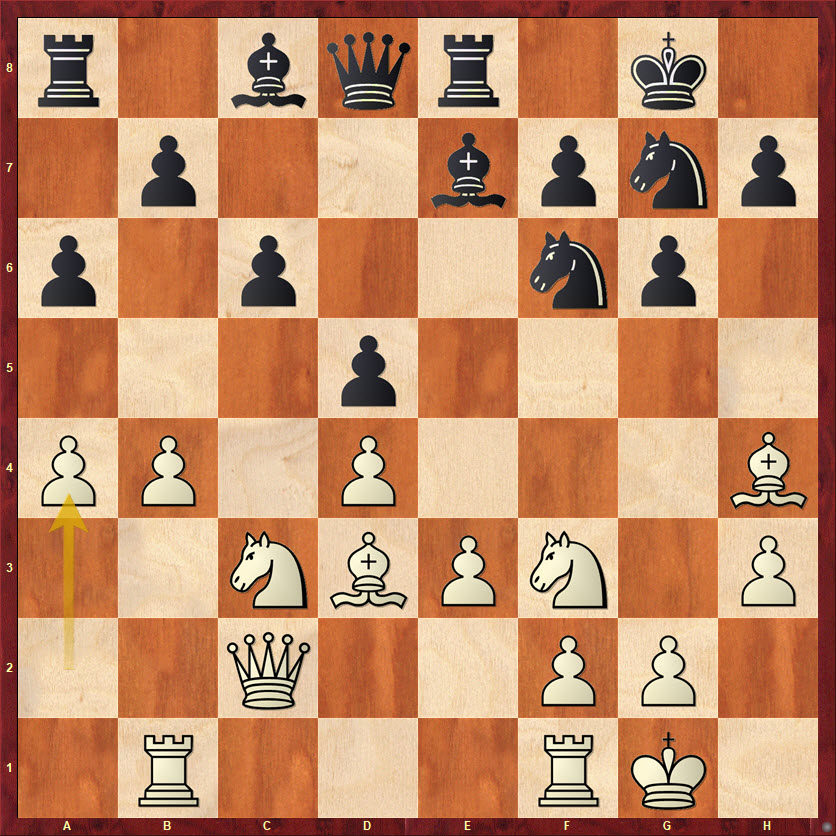This week was atypical. Due to an emergency, I had to take care of a family member and wasn’t able to keep my one-hour sessions every day. Out of six days (the day I take my chess lesson I don’t do any practice), I practiced for an hour just one day. One other day I practiced 40 minutes, one day I did 10 minutes, and three days I didn’t practice at all. This week I didn’t feel like playing blitz, so I played just a handful of games. However, I did watch more advanced players through Lichess TV. On Lichess TV you can watch live games of the highest-rated people who are playing at the moment on the platform in each category (blitz, bullet, etc.).
During and after the week I reflected about how we handle the unexpected when we are building a skill. What do you do when you suddenly have to take care of something unplanned (sickness, an emergency, etc.)? Is it okay to skip the practice those days? Even though I skipped the practice entirely during 3 days out of 6, I wouldn’t recommend that.
I believe that when we feel like we cannot create the time to practice as usual (because of an emergency), the second-best thing is to do a reduced practice. During this week, one day I only had the emotional energy to do just 10 minutes of practice (pawn endings + rook endings exercises), very late at night and right before going to bed. That’s what I did on January 27th (the first practice day of the week). But after logging in those 10min on my Google Docs I felt like a failure. I had broken my streak, my commitment to practicing one hour each day. The next three days I did absolutely nothing. And after that, I was able to do a one-hour session (the 5th day), and a 40-min one (6th day) to complete the week.
The idea of having a Plan B is important (practicing 10min), but at the same time can be tricky. What counts as an ’emergency’? How do you know if you’re just making something up because of laziness, anxiety, or fear? You got to be honest with yourself. 🙂
The Weekly Practice (01/27/21 to 02/02/21)
This was a very light week. The first day I just did a few tactics and exercises for pawn endings and rook endings on Chess.com. I chose a rating of 2000-2200 for pawn endings and 1800-2000 for rook endings (“finali di pedoni” and “finali di torre”, respectively 🤓). They were quite easy, but useful anyway.
The rest of the days I studied the Carlsbad structure with white.

Even though I haven’t played this specific structure yet, the idea of having a beautiful outpost for a knight on c5, and/or playing against a weakness on the c6 square lingered on and somehow manifested in one of the blitz games of the week (a Viena Game, played on January 31st).

Watch the full game below!
Watching High-rated Players on Lichess TV
Despite not practicing or playing blitz as usual, this week I found an alternative ‘activity’ that seemed quite valuable. Even though I didn’t feel like ‘actively’ practicing (studying, doing tactics, etc.), at different times of the day I fired up the Lichess up and watched the featured blitz game of the moment. Usually, on Lichess TV you get to watch live games of players rated above 2500 (at least, that’s what I see in blitz).
Most of the players above 2500 are titled (FM, IM or GM) and have a great tactical vision and good tecnichal skills. By watching their games, I always tried to find the best moves while they played. Each time I chose the same moves they chose I felt reassured. Even when we both made mistakes or blunders! Yes: advanced players also make mistakes.
I came to think of this activity (watching more advanced players live) as an equivalent of passive listeining when we’re learning a foreign language. A common practice among hardcore language learners is to listen German, Japanese, or whatever language they are learning, in the background as they do their chores and live their life. It’s not the same quality of ‘exposure’ to the language as the one you get with active immersion (reading a book/watching a movie with your full attention / or actively studying chess), but it’s helpful. I think of these activities as complements (not substitutes) of a skill building regime.
That’s all for now! 😊
